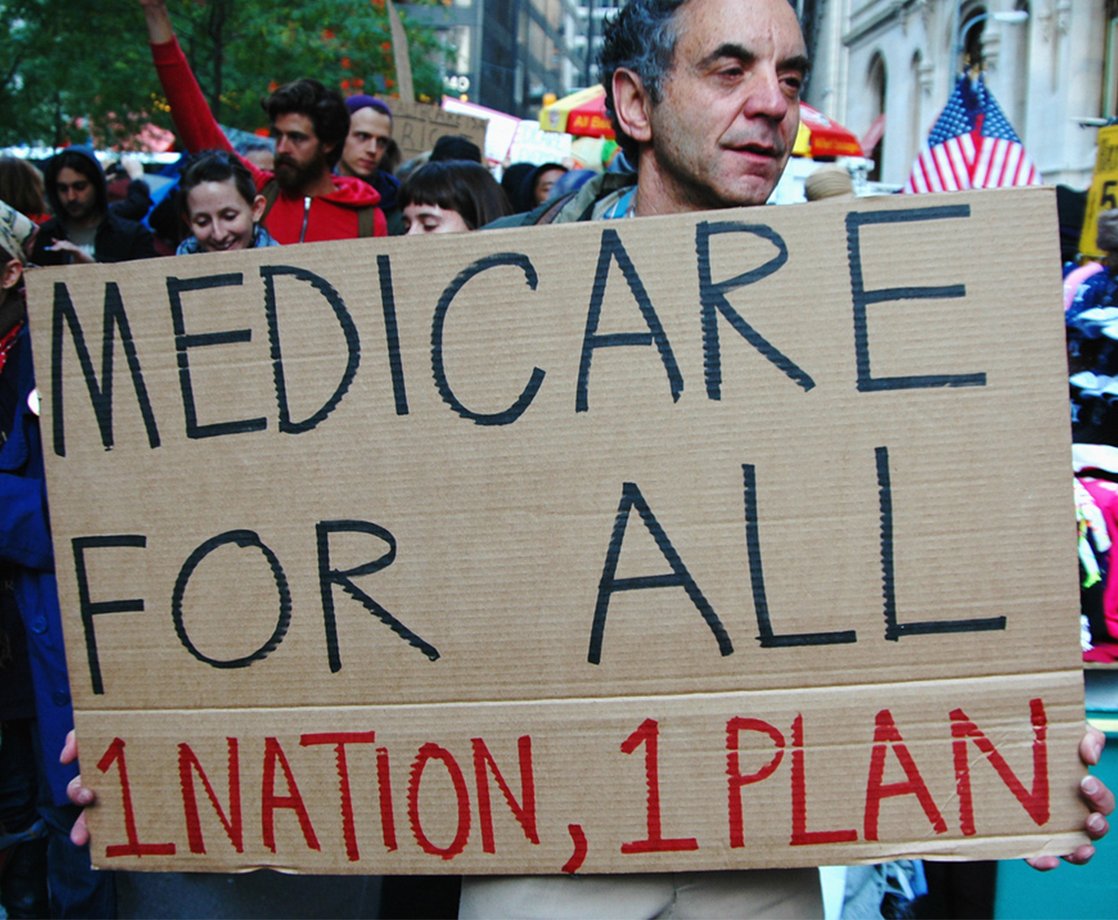Lead image via Flickr CC
As the cliche goes, the best defense is a good offense. It only makes sense, then, that in the age of Trump, Democrats are looking to policies that are popular in blue and red states alike. Many Democrats, led by Bernie Sanders, have looked to Medicare for All as the next logical battleground. Not only has Sanders introduced Medicare for All legislation, but several states are trying to advance their own measures that would turn healthcare into a public service, essentially providing something close to universal healthcare. With Obamacare’s flaws becoming more apparent, and Paul Ryan’s AHCA so unpopular that it couldn’t even get a vote, the time seems right for a single payer push. But, some of the staunchest opponents of Medicare for All aren’t the right wingers you would expect, but liberal politicians themselves. Over one hundred House Democrats have declined to support single payer legislation and most Democratic Senators are dragging their feet on the issue. Here’s why some Democrats are standing in the way of Medicare for All.
Political Possibility
A common argument from Democrats is that single payer isn’t politically possible. The implication is that what political capital the Dems have is better spent elsewhere. This argument was popularized during the 2016 campaign, when Hillary Clinton successfully painted herself as a amore pragmatic and electable candidate than Bernie Sanders. On the campaign trail, she said Sanders’ policy on health care was one of those, “ideas that sound good on paper but will never make it in real life.” She emphatically told voters that single payer will “never, ever come to pass.” Congressional minority leader Nancy Pelosi is one of a number of establishment Democrats to adopt this trope, telling frustrated town hall attendees, “if you want to move to single payer, what you should do… is support state options.” She said this, of course, without endorsing either of the state options on the table in California.
Why do Democrats talk like this? For them, single payer could be a political possibility. But, with a Democratic establishment that takes vast sums of money from special interest groups and leans to the right in hopes of currying favor with moderate Republicans, it is a hard win. Let’s look at the Democratic tendencies that have given rise to the belief that single payer health care is impossible, when it’s really only politically impossible for Democrats running an outdated, out-of-touch playbook.
Tax Increases
Any universal healthcare plan would require a tax increase. But for most people, this increase would likely work out to less than their contribution to their employer healthcare plan or their monthly premium. Unfortunately, that is a hard sell. Republicans have become masters of demonizing Democrats for tax increases. As a result, a number of Democratic politicians have come out against universal healthcare. Despite the rising popularity of California’s newly introduced Medicare for All Measure, SB 562, Governor Jerry Brown recently remarked to reporters, “Where do you get the extra money [for universal healthcare]? This is the whole question. I don’t get… how do you do that?” Colorado Senator Michael Bennet and Governor John Hickenlooper have expressed similar concerns. When discussing a similar measure in his state, one of Bennet’s spokespeople said, “Michael does not think that single payer is the right approach to solving our health care problems, and in particular has concerns about putting a complete overhaul of our healthcare system, including a massive tax increase, into the state constitution where it can’t be changed.” Despite the challenges of passing a tax increase, Obamacare’s resurgent popularity has shown us that legislation that really helps people will yield long-term political rewards.
Insurance Company Cash
While medical providers — i.e. hospitals and the professionals actually providing the care — don’t stand to lose from single payer, a true single payer plan would hobble or eventually eliminate health insurance companies. This is by no means unprecedented: you don’t see too many horse drawn carriage companies around these days. But, that doesn’t make it politically easy. While many jobs would be created in the government and for medical providers as people who have never received decent healthcare suddenly gain coverage, politicians would have to make it through enough elections to see this bear fruit.
Insurance companies are willing to spend untold amounts of money to defeat a single payer measure, as it is ostensibly a referendum on their very existence. As you might expect in a post-Citizens United world, there are Democratic politicians on the dole of healthcare conglomerates and Big Pharma. Pharmaceutical companies land on the side of insurance companies in this battle because a government run program would have a strong bargaining position against them and drive down their notoriously high prices.
Senator Cory Booker took a lot of flack back in January when he came out against a measure to allow Americans access to Canadian drugs at the bidding of his Big Pharma overlords. He is not alone. While Booker takes more than any other Democratic Senator from pharmaceutical manufacturing companies, Senators Casey, Murray, and Bennet also receive six-figure donations from Big Pharma and opposed the measure. If you search Open Secrets for insurance company donations, from Aetna to Blue Shield, you consistently find healthy contributions to the Democratic Party and to Democratic candidates from health insurance companies.
The Way Forward
The reality is that single payer healthcare is not impossible. In fact, most Americans support it. Prior to 2016, the conventional wisdom was that Democrats win by running to the center and outdoing the Republicans at their own donations game. If nothing else, this year’s election season has taught us that conventional wisdom is off the table. An energized base that feels it is being offered something other than compromise might be more powerful than the current Democratic strategy of being the Republican Light party buoyed by corporate donations. The people are moving toward universal health care; it is only a question of when politicians will decide to come along.











